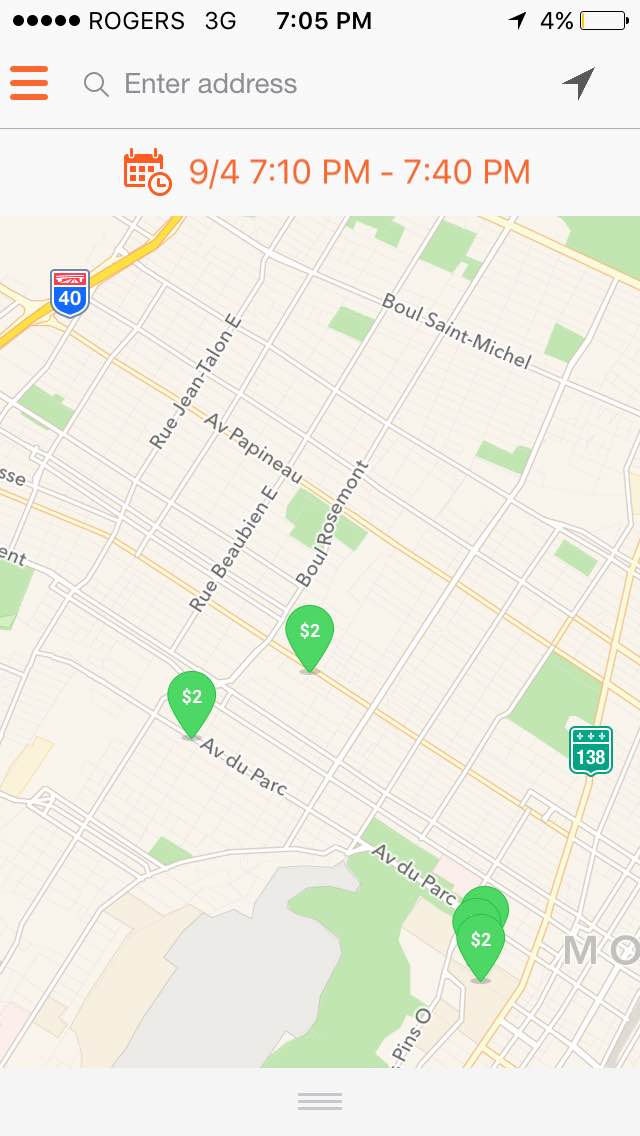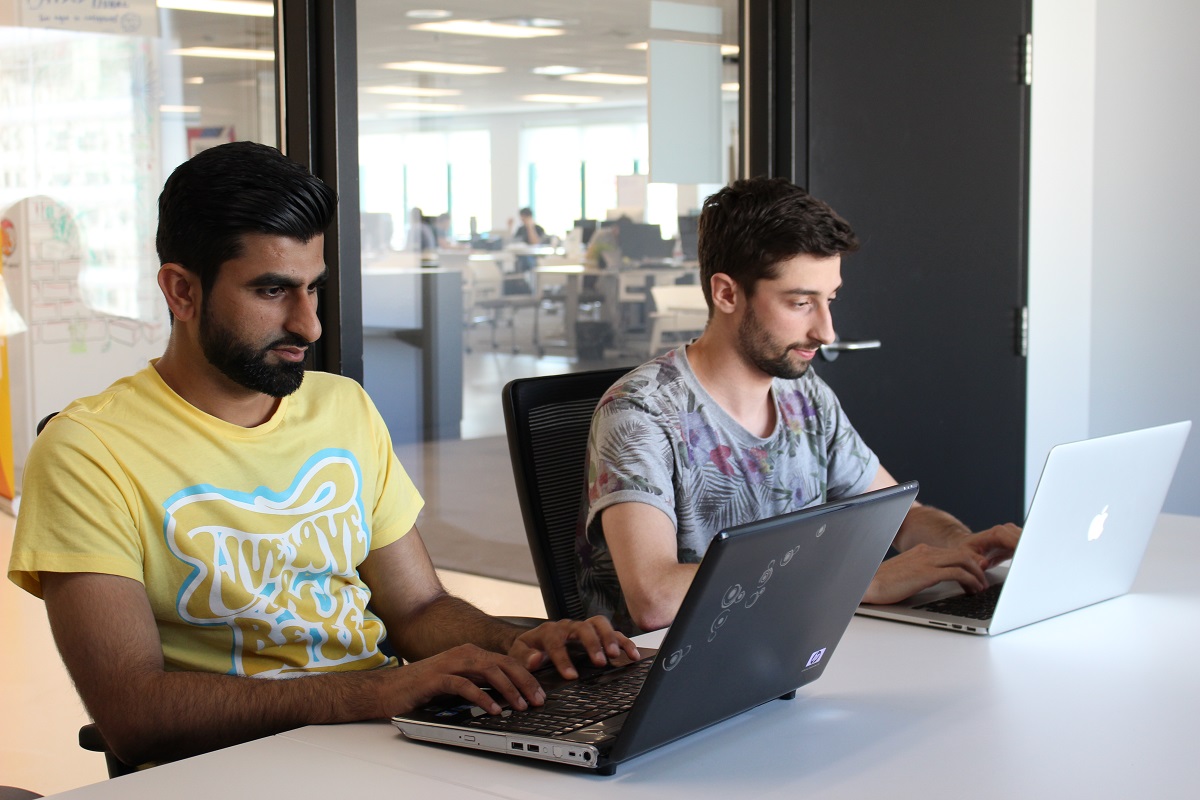Montrealers can now rent out their vacant private parking spots
Thanks to a cousin from the South Shore, a well-situated apartment and a productive 14-hour flight, Amin Dada may have created a permanent solution to a problem plaguing modern-day life: parking.
A conversation about the struggles of parking in a big city usually turns around in the same circles as the cars looking for parking. Dada, a self-described “OCD problem-solver,” needed to fix the problem once he got acquainted to it. The 30-year-old Concordia graduate is the founder of City Parking, a mobile app that lets driveway and parking spot owners rent out their spots when they are not being used.
Dada got a taste of what the app would be like before even getting the idea for City Parking. In late 2012, he started lending his parking spot to a cousin who drove downtown during the week to get to Concordia. Dada—who lived right behind Montreal’s Bell Centre at the time, and had a parking spot but no car—was happy to do so. He started offering up his spot to more of his friends and family, until it became quite the annoyance.
“I was a virtual lot attendant taking reservations through calls and texts at work,” said Dada with a laugh. The situation got Dada thinking about a permanent solution to people’s parking woes. On a long flight in December 2013, Dada wrote up his business plan for the idea. The app went live on July 20, 2016.
The app is pretty straight-forward. Upon downloading the app, the user must simply sign up. Users get an hour of free parking the first time they use the app. After the free trial, a driver can reserve or book a spot anytime, anywhere, in advance or at the last minute, for a flat rate of $2 an hour. Dada explained that if a car is parked in the spot upon arrival, the driver can either call the owner using the app, or select the “report problem” setting in the app—which calls the City Parking team directly. From there, the team leaps into action and finds the next closest spot for the driver, and gives them 30 minutes free.
While the concept of the app may sound similar to the Uber app in terms of average people offering a car service, nothing makes Dada and his team cringe more than being compared to the company. While City Parking is decluttering the streets, and promoting public transport by suggesting spots close to bus stops and metro stations, Dada said, Uber is doing the opposite.

The app has not been heavily advertised or shared with the media because the team wanted to give it a test-run with friends, family and people who stumbled upon it. City Parking currently has over 100 users and 20 parking spots. The official launch of the app will take place in late September—an exact date has not been set yet.
The City Parking team is still small, but hard at work and attracting big names. The team. All Concordia graduates, is composed of five employees, plus two investors, and two advisors—including one from Google. The team is also receiving support from the city, the details of which Dada is not yet able to disclose.
Concordia student Aubrey Hansen-Barkun joined the team last winter. The 23-year-old marketing student was looking for a project to get involved with—a start-up worthwhile. He found Dada’s ad on Indeed and the two met up.
“First time we spoke, I was like ‘wow, this is an incredibly smart guy, and this is definitely something I want to be a part of,” said Hansen-Barkun, who is now the start-up’s marketing analyst.
The pair’s passion for the project is apparent in the amount of research they have conducted, and in the focused and energetic way they speak about their app. Dada and his team have a global vision for the start-up.
“Parking lots are being taken over by condos—meters cannot be expanded. Where will you find parking when your city grows? If we can solve parking [problems] for Montreal, we can solve it for other cities as well,” Dada said.
On top of decongesting the streets, Dada explained, solving the city’s parking problems has the power to lower carbon emissions caused by the “cruising time” that cars take when looking for parking. A 2006 study on parking, conducted by UCLA professor Donald C. Shoup, found that drivers in a 15-block district in Los Angeles “cruised” for 950,000 miles, produced 730 tons of carbon dioxide and used 47,000 gallons of gas just searching for parking. While gas station lots are sitting empty all day, and townhouse driveways are generally vacant between 9 a.m. and 5 p.m., cars are polluting the air as they drive aimlessly around, looking for something they may never find, said Dada.
In the large and bright conference room of the team’s office space, Dada and Hasen-Barken sit with their computers, a couple of notepads and a cardboard coffee cup— the pair looks small, hopeful and powerful all at once—just like their app does in the ever-growing, digital-sharing economy.




